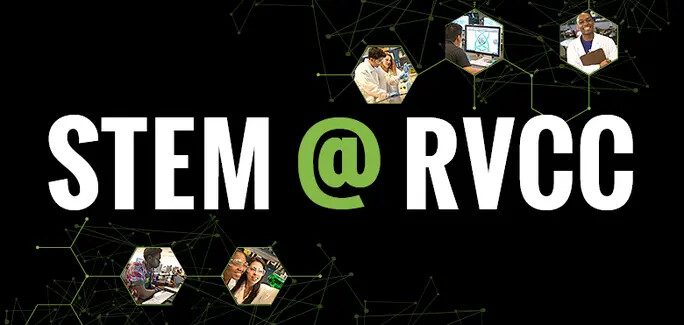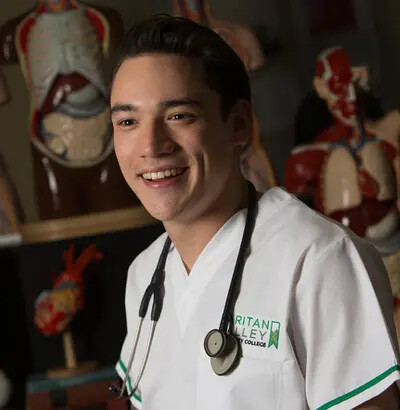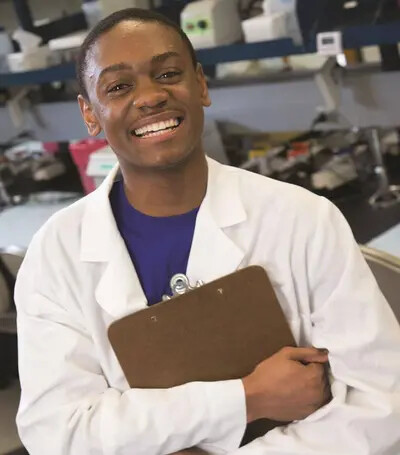STEM Strong: RVCC’s Commitment to Science, Technology, Engineering & Math

By now, you’ve surely head of STEM—the acronym for Science, Technology, Engineering and Math. As one of the fast-growing sectors of our economy, STEM is a hot topic of discussion in the education world. The New Jersey Department of Labor projects that by 2018, approximately 269,000 STEM-related jobs will need to be filled in the state. With a longstanding commitment to STEM education, Raritan Valley Community College offers a number of opportunities for students to become immersed in STEM fields and prepare for a successful future. Read on to learn why RVCC is considered a STEM-friendly institution!
Academic Programs
There is no shortage of STEM majors available at RVCC. Those interested in environmental science, biology, chemistry or physics can earn an Associate of Science Degree in these subjects. Other STEM-related programs at RVCC include engineering science, computer science, mathematics and more. The caliber of our coursework makes transferring colleges easy—and many students go on to top-notch universities after earning their 2 year degrees in STEM fields. For a full list of degree and certificate programs, click here.
Buzzworthy Courses
In RVCC’s Authentic Engineering Experience course, students are tasked with designing, prototyping, building and delivering a real product to a real customer. Recently three students from the class presented their projects at the American Society for Engineering Education (ASEE) Mid-Atlantic Conference—and were the only community college students to do so. One project was a laser-music system that used only modulated laser-light to transmit music across a room to multiple receivers with audio-speakers. The other was an umbrella that illuminated 200 LED lights when opened, without the use of batteries. Click here to learn more.
Campus Expansion
In late 2016, RVCC opened a 23,500-square-foot expansion to its Christine Todd Whitman Science Center. The expansion doubled the size of the building and added four chemistry labs, a physics lab, a hybrid room that functions as both physics lab and lecture room, and two additional classrooms to accommodate a growing number of students interested in pursuing science degrees. The labs contain the latest equipment and instrumentation.
Scholarship Support
The College offers special scholarships for STEM majors based on academic success. Since 2003, the Galileo Scholarship program has provided close to 600 STEM students with approximately $1 million in scholarships. Galileo Scholars receive more than just financial support. They also have opportunities to seamlessly transfer to partnering institutions of higher learning education, explore STEM career possibilities, receive advice and academic support from faculty in their discipline area, and participate in many STEM-related activities on campus. Click here to learn more about Galileo Scholarships.
Academic Clubs
Students can explore an interest in STEM outside the classroom by getting involved with various academic clubs at RVCC. The Engineering Club offers guest lectures, facility tours, construction competitions, and community projects—including a service learning collaboration in robotics. The RVCC Math Club works on advanced, research-heavy projects—including their recent Autonomous Car Project in which they created a self-driving vehicle. Click here to find STEM-related clubs.
Kids Classes
We haven’t forgotten about the little ones! RVCC has recently started offering a variety of classes for children ages 5-12 who are interested in STEM subjects. These include Junior Animation, STEM Inventions with LittleBits, Junior Engineering, and Engineering Principles via Building with LEGO, among others. To learn more, click here.
Notable Numbers
Since 2007, the number of students enrolled in STEM programs at RVCC has increased more than 250 percent, and the number of STEM degrees awarded has increased 500 percent. Our pool of engineering majors has doubled over the last five years, and the Environmental Science program now has five times as many students as it did in 2007.




